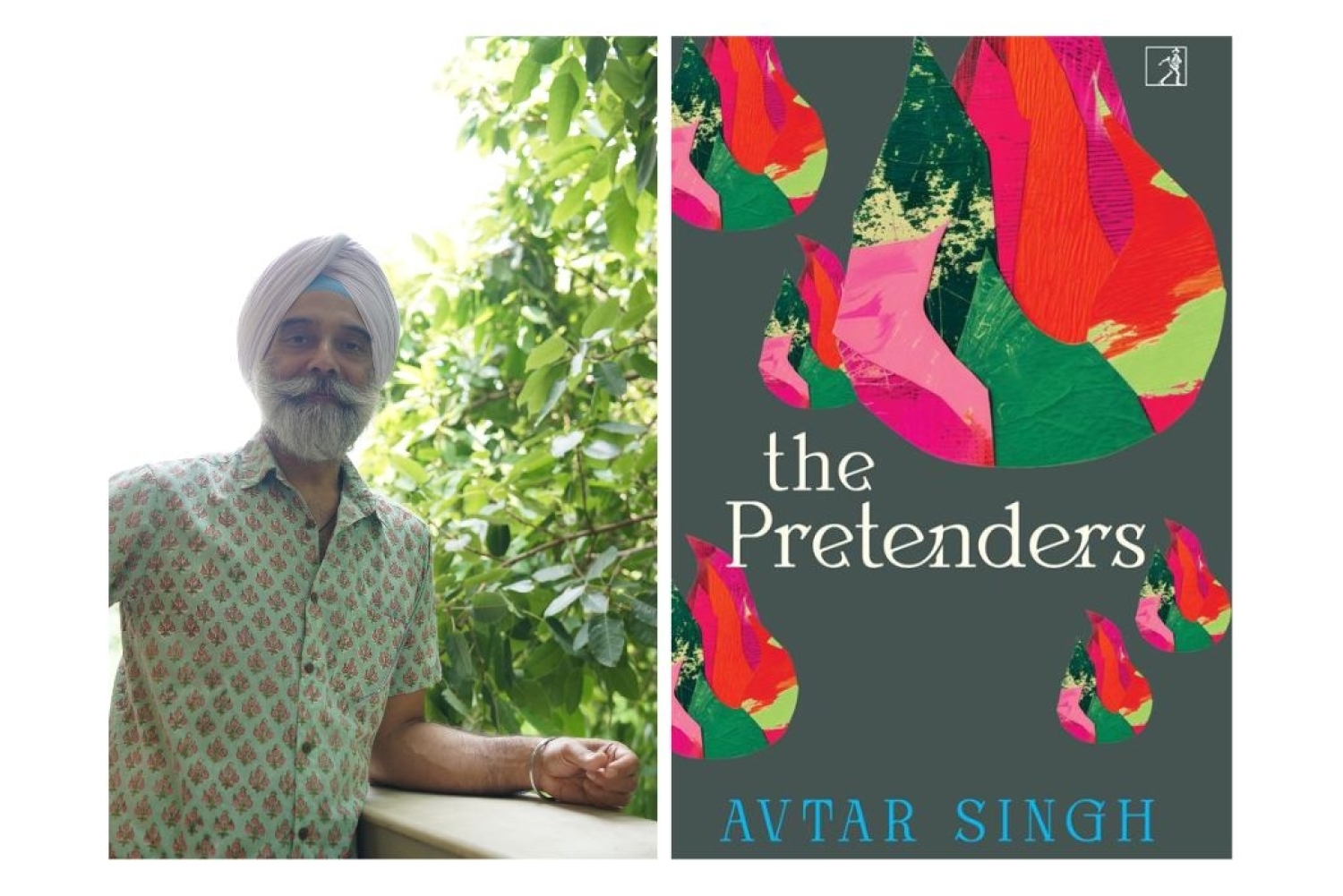
Author Photo by Oijo Media

Author Photo by Oijo Media
Set across Asia at the peak of the brutal Delta wave, The Pretenders is a novel about finding love, freedom, and human connection in the bleakest of times. The novel follows multiple characters as they grapple with a global crisis, and captures the complexities of living through a one-in-a-generation event. In times like this, whether policemen or predators, the privileged or the poor, masters or servants, everyone must face themselves and see the truth clearly. We’re in conversation with Avtar Singh on his new book, and the ways in which the pandemic altered our realities.
What first drew you to set a novel during the Delta wave, and how did you approach writing about such a recent and raw moment in history?
I’ve been living in Germany since 2019. Having my wife and son there meant I could face Covid with relative equanimity. But my father and two of my sisters (and their families) were back in Delhi, and not being able to visit them at a time of crisis was unsettling. When Delta hit, that lack of contact became terrifying. Delhi seemed to be on fire. My family was under threat, and there was nothing I could do. There is only so much you can say with your phones. So, I turned to writing to make sense of that time. To remember how it felt. Also, to bear witness. A lot of terrible things happened that shouldn’t be forgotten. Equally, ordinary people helped each other in ways that need to be celebrated.
Each of these characters face different challenges in different cities: what holds them together?
They’re united in a few things: their isolation, their inability to turn to the people and support structures that would otherwise hold them up, their helplessness in so many ways. At one level, this helplessness was interesting to me because I’m fascinated by class and how it plays out. In India, and all over the world, really, the privileged have no experience of helplessness. Covid was a real outlier in that respect. Everyone was threatened. Yes, the larger size of your bubble affords you a measure of protection, but a virus doesn’t respect your education, your club memberships, your accent or the size of your car. The people in the book are in different places, and belong to different levels of the class pyramid. But Covid screwed with everyone’s equilibrium. They’re united by that, if nothing else.
How did the pandemic change your own perspective as a writer, and do you see those changes shaping your work going forward?
The pandemic changed my perspective as a person. My feeling for what is important was heightened; contact, family, savouring small happinesses as they occur: things like that. On the other hand, my tolerance for bullshit fell through the floor. 'Life is too short' is the real lesson of that time. Insofar as my writerly life reflects who I am (how could it not? I’m not that much of a pretender), that’s what’s changed. But I leave it to my readers to really work out what’s different on the page.
The book emphasises that it is crucial to find love and connection in the bleakest of times, why is that important to you?
To me, this is what it means to be human. We have our lives with other people, unless we’re sociopaths. We look for love and connection in every situation. That need is only heightened when things get tight. The flip side to that is the atomization of our lives at this moment. I think we all feel the need for connection, but we’re increasingly unable to find it. We might be losing the tools. Witness the movement attacking ‘empathy’ that we’re seeing in certain quarters. If we aren’t empathetic to each other, then how do we achieve connection? If we aren’t connected, are we even human anymore?
Where do you turn for inspiration?
My family. The forests where I live. The natural world. Exercise. Cooking. Music. The same as everyone else, really.
What is the future looking like — what are you working on next?
I like putting people from earlier works in the things I’m working on now. Partly it’s because it’s fun to meet old friends again. But also, I think there is a unity to the ideas and themes I engage with. Class, urbanism, how love manifests (and its weight) in families… So, if I’m writing about the same things, why not engage with the same people?
Which is a roundabout way of saying that I wrote a short story for the wonderful Hachette Book of Indian Detective Fiction called A Scandal in Punjab. It is set in Lahore in 1947. One of the protagonists is a Sikh gent named Bikram, who hunts and shoots and has a mysterious mistress. His grandson is in The Pretenders, but it isn’t made clear. The grandson’s wife and son-to-come will be in the book I’m working on, a work of speculative fiction set in the near future.
Date 19-9-2025